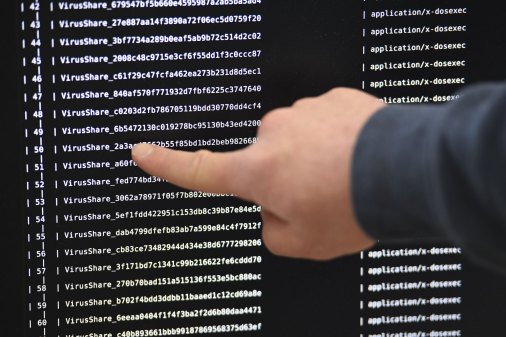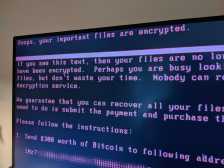Atlanta ransomware attack was worse than originally thought
The March 22 ransomware attack that crippled computer systems throughout Atlanta’s municipal government was wider-ranging and more expensive than officials initially revealed, the city’s interim chief information officer told the city council on Wednesday.
Daphne Rackely told council members during a budget meeting that her department will need at least another $9.5 million to recover from the cyberattack, which has affected many more city systems than official previously said.
Rackley told council members that at least one-third of the more than 400 programs used by city computers were impacted by the ransomware bug, 30 percent of which are “mission critical.” Among the systems the cyberattack took down were online payments for water and sewer bills, applications for business licenses and court scheduling, which effectively halted the municipal courthouse for nearly a month.

Atlanta Interim CIO Daphne Rackley.
While that damage has largely been repaired, city officials have said, other impacts — including those related to public safety — are still coming to light. Last week, Atlanta Police Chief Erika Shields said the ransomware caused the loss of “years” of dashboard camera footage that could be crucial in cases that rely on officer testimony.
“It seems to be growing every day,” Rackley said.
Reuters reported that Interim City Attorney Nina Hickson said the ransomware destroyed nearly a decade’s worth of legal documents.
But the resources needed to continue fixing city computer systems will strain Atlanta Information Management’s budget, Rackely said during the hearing. The $9.5 million figure she quoted is on top of a $35 million allocation for IT in Mayor Keisha Lance Bottoms’ proposed budget for the 2019 fiscal year. It’s also in addition to the more than $5 million that’s already gone out the door in emergency contracts since the ransomware was first detected.
Atlanta Information Management did not respond to questions about how it would allocate the additional $9.5 million if it receives it.
The continued fallout from the ransomware shows how that kind of cyberattack can have long-tailed effects that are far more expensive than what the hackers behind it demanded. Atlanta was hit with the ransomware bug known as SamSam with a request for a bitcoin purse equivalent to about $51,000.
It’s also been a rough lesson for city officials who — some by their own admission — hadn’t spent much political or financial capital on cybersecurity. Bottoms, who was inaugurated in January, said last month that the issue never came up with Atlanta residents while she was running for mayor.
“While it should be top of mind for us as elected officials, it’s not something people see and our communities are discussing,” Bottoms said at a conference last month.






